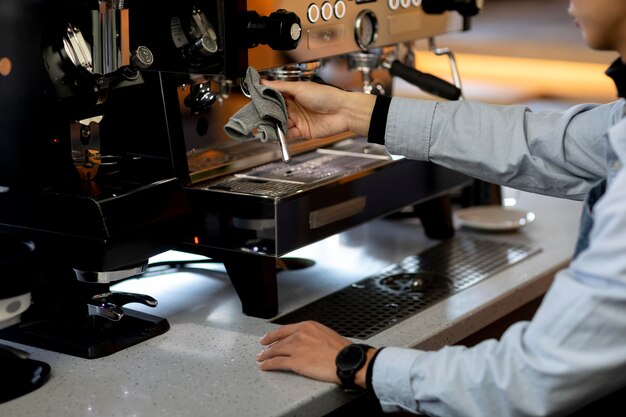
Sponsored article
Automation is transforming industries worldwide, and coffee production is no exception. As producers seek to meet growing demands efficiently while maintaining high quality, automated solutions offer a promising path forward. This article examines the pivotal role of automation in reshaping coffee production, highlighting the benefits it provides in operational efficiency, product consistency, and sustainability. Join us as we delve into the innovations boosting the coffee industry.
Automation in coffee production introduces a host of advantages that traditional methods simply cannot match. First and foremost, the automation benefits include a dramatic boost in efficiency, as sophisticated machinery can handle repetitive tasks at a speed and accuracy that manual labor cannot achieve. This efficiency translates to higher throughput, minimizing bottlenecks in the production line and ensuring that larger volumes of coffee can be processed without delay. Furthermore, automation contributes to quality control by ensuring that each batch of coffee is processed under consistent conditions, reducing variability, and enhancing the overall quality of the final product.
Another key advantage is cost reduction. Although the initial investment in automated machinery might be significant, the long-term savings in labor costs and reduced waste make it a sound financial decision. Automation also reduces the likelihood of human error, leading to lower rework rates and maximizing raw material use. Businesses looking to incorporate automation would benefit from exploring options during a Coffee Machines Sale, allowing them to upgrade their operations with the latest technology. As the coffee industry continues to grow, embracing automation becomes increasingly critical for competitiveness.
The coffee industry has embraced cutting-edge technology in coffee processing, redefining how this beloved beverage is produced. Among the most significant processing advancements is the integration of automation tools that streamline various phases of production, from sorting beans to roasting and packaging. Technologies such as optical sorters use high-resolution cameras and lasers to identify and separate defective beans, ensuring quality control at unprecedented speed. Similarly, advanced roasting machines now incorporate AI algorithms that adjust temperature and timing with precision, achieving the perfect roast profile for different bean varieties.
Automation in coffee processing offers numerous benefits, such as:
These technological advancements are not only enhancing production efficiency but also improving the overall quality of coffee, meeting consumer demands for excellence. By embracing these innovations, the coffee industry is better positioned to adapt to changing market dynamics and sustainability expectations.
In the realm of eco-friendly coffee production, the sustainability impacts of automated coffee production are profound. Automation impact is reshaping the industry by significantly reducing waste and optimizing resource use. Traditional coffee production often results in considerable waste due to inefficiencies in processing and handling. However, automated solutions streamline these processes, enhancing precision and efficiency. By employing robotics and intelligent systems, coffee producers can minimize waste generated during harvesting and processing stages, recycling by-products effectively.
This seamless integration of technology not only reduces the environmental footprint but also ensures resources like water and energy are utilized optimally. Automated systems allow for precise water management, reducing overuse and preventing runoff that contaminates ecosystems. Furthermore, energy-efficient machinery minimizes power consumption, contributing to greener operations. Through the adoption of automation, the coffee industry can move towards more sustainable practices, promoting long-term environmental stewardship and eco-friendly coffee production.